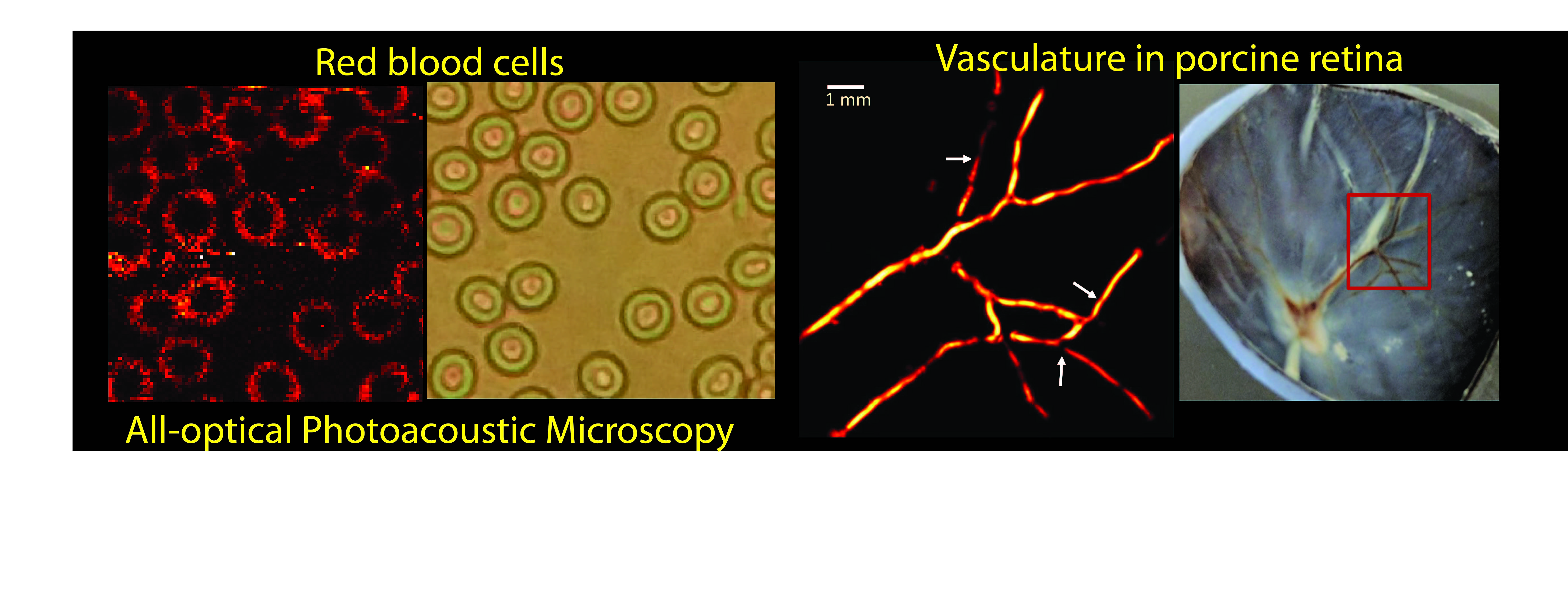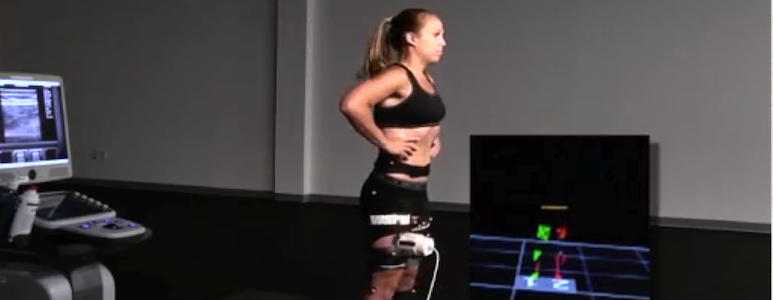Welcome
The Biomedical Imaging Lab conducts translational research using imaging to investigate pathophysiology and function. One overarching focus of our research is the investigation of brain-body interactions through imaging. In particular, we are studying the interactions between the central and peripheral nervous system and the musculoskeletal system in a number of clinical conditions of major public health significance, such as chronic pain, stroke, spinal cord injury, and amputation. The interdisciplinary group conducts pre-clinical research for developing new technology as well as translational research on human subjects. The group uses state-of-the-art ultrasound and laser instrumentation for developing new ultrasound, optical, and hybrid imaging techniques. Our research has potential applications in noninvasive diagnosis, screening, and treatment monitoring for a number of diseases, as well as for understanding underlying mechanisms of disease.
Ongoing research is being conducted in three main areas:
- The first area is the development and evaluation of novel bionic technologies such as, upper extremity prostheses and hybrid exoskeletons, using wearable imaging sensors for sensing the human user’s volitional intent. This approach can significantly improve the functionality of advanced prostheses and exoskeletons.
- The second area is the characterization of tissue property changes in disease. We have ongoing projects involving imaging in chronic pain, vascular disease, pelvic floor injuries and age-related macular degeneration. We are developing all-optical photo acoustic microscopy techniques and quantitative ultrasound imaging methods.
- The third area is the use of ultrasound energy for non-invasive therapy and induced bioeffects. Ongoing projects involve developing wirelessly actuated drug-delivery implants, as well as ultrasound-mediated non-invasive neuromodulation.
Our research is funded by the National Institutes of Health, National Science Foundation, Department of Defense and the Veterans Health Administration. The principal investigators are Dr. Siddhartha Sikdar and Dr. Parag V. Chitnis.
THE LATEST:
Congratulations to Nima Akhlaghi on successfully defending his PhD Dissertation. Nima will continue his career at the US FDA as a postdoctoral fellow.
Regaining mobility after a spinal cord injury, with help from an exoskeleton
Dr. Siddhartha Sikdar is the PI of the project, “CPS:Synergy:Collaborative Research: Closed-loop Hybrid Exoskeleton utilizing Wearable Ultrasound Imaging Sensors for Measuring Fatigue” funded by the National Science Foundation. Dr. Parag Chitnis is a co-investigator on the project as well.
Rehabilitation Science and Bioengineering partner to improve spinal cord injury intervention
Dr. Siddhartha Sikdar and Dr. Andrew Guccione worked together on a collaborative project funded by the Office of the Provost Multidisciplinary Research initiative.









